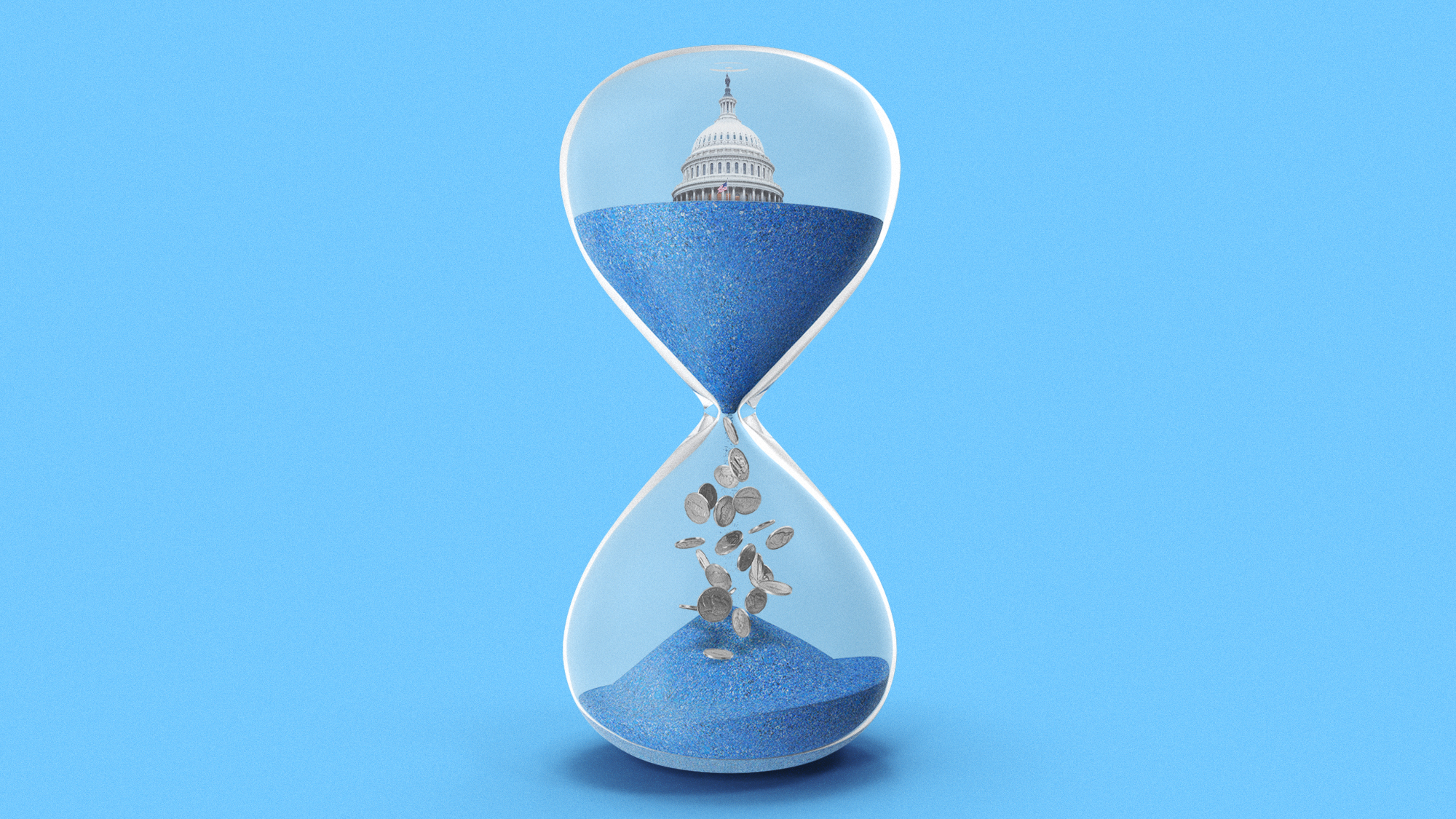What's a pocket rescission and can Trump use one?
The White House may try to use an obscure and prohibited trick to halt more spending


A free daily email with the biggest news stories of the day – and the best features from TheWeek.com
You are now subscribed
Your newsletter sign-up was successful
The Constitution unambiguously grants Congress the power to determine how tax dollars are spent, an uncomfortable reality for the Trump administration's efforts to unilaterally slash spending. Many of the cuts recommended by Elon Musk's Department of Government Efficiency (DOGE) in the spring therefore needed the retroactive blessing of Congress, a process known as "rescission." And media reports suggest that the Trump administration is soon set to escalate its war on Congress' spending power by using something dubbed a "pocket rescission" to block funding without giving Congress enough time to consider the request.
What is the Trump administration trying to do?
Congress frequently rescinds money it has previously allocated for all kinds of reasons. But the Office of Management and Budget (OMB) under Director Russell Vought might "employ a pocket rescission sometime before the Sept. 30 government funding deadline," said The Hill. Vought's plan involves using not the ordinary rescission process driven by Congress but rather section 1012 of the 1974 Impoundment Control Act. This allows the president to pause, or impound, allocated funding for 45 days. If Congress doesn't act to officially rescind the funds, the executive branch is obligated to resume the spending.
This actually happened quite recently. In July, the Republican-controlled Congress complied with the Trump administration's request to rescind $9 billion in spending, including funding for public broadcasting. While critics lambasted Congress for capitulating to the White House, the maneuver was legal. The Trump administration, however, is reportedly planning to use this provision in a way that the U.S. government has recently deemed unlawful. This so-called "pocket rescission" is "when a president asks Congress to rescind (or cancel) funds very close to the end of the fiscal year," said the Government Accountability Office (GAO). Because "not enough time is given to consider this request," the president is "bypassing congressional authority over government funding" and taking a knee to let the clock run down on spending he dislikes.
The Week
Escape your echo chamber. Get the facts behind the news, plus analysis from multiple perspectives.

Sign up for The Week's Free Newsletters
From our morning news briefing to a weekly Good News Newsletter, get the best of The Week delivered directly to your inbox.
From our morning news briefing to a weekly Good News Newsletter, get the best of The Week delivered directly to your inbox.
The current fiscal year ends on Sept. 30, and therefore any rescission request that pauses funding after August 16 (45 days before the end of the fiscal year) would qualify as a "pocket rescission." The GAO is an independent, non-partisan agency located in the legislative branch that was created to "make sure that the appropriation laws enacted by the Congress are properly implemented," said the American Enterprise Institute.
A pocket rescission is "neither a rescission nor is it legal," said the Center for American Progress. After all, a "loophole that allowed the president to impound funds over the will of Congress" would ultimately "undermine the entire intent of the law." But the "OMB asserts that there is nothing controversial about pocket rescissions," said Lawfare. The record shows "they have been used this way before," and past presidents, including Jimmy Carter, employed them without being accused of precipitating constitutional crises.
Can anyone stop a pocket rescission?
During the second Trump administration, the boundaries of legality are being redrawn by the president in conjunction with a Supreme Court determined to legitimize virtually every action by the White House. This dynamic was perhaps clearest when the Supreme Court blessed the Trump administration's decision to fire Democratic members of the bipartisan National Labor Relations Board, in clear violation of congressional statute and existing Supreme Court precedent on the matter. While the Supreme Court's May decision in that case was "technically a temporary one," it nevertheless "clearly forecasts the eventual outcome of the case when it is argued before the court," likely sometime in 2026, said NPR.
So while pocket rescissions are of dubious legality according to widespread understandings of the U.S. Constitution as it existed prior to Trump's second inauguration, the Supreme Court seems quite unlikely to halt them. Instead, in keeping with the doctrine of the "unitary executive theory," the court will almost certainly grant the Trump administration wide latitude to interpret existing law as it sees fit.
A free daily email with the biggest news stories of the day – and the best features from TheWeek.com
David Faris is a professor of political science at Roosevelt University and the author of "It's Time to Fight Dirty: How Democrats Can Build a Lasting Majority in American Politics." He's a frequent contributor to Newsweek and Slate, and his work has appeared in The Washington Post, The New Republic and The Nation, among others.
-
 ‘My donation felt like a rejection of the day’s politics’
‘My donation felt like a rejection of the day’s politics’Instant Opinion Opinion, comment and editorials of the day
-
 Trump wants a weaker dollar but economists aren’t so sure
Trump wants a weaker dollar but economists aren’t so sureTalking Points A weaker dollar can make imports more expensive but also boost gold
-
 Political cartoons for February 3
Political cartoons for February 3Cartoons Tuesday’s political cartoons include empty seats, the worst of the worst of bunnies, and more
-
 Will Trump’s oil push end Cuba’s Communist regime?
Will Trump’s oil push end Cuba’s Communist regime?Today’s Big Question Havana’s economy is teetering
-
 Will Peter Mandelson and Andrew testify to US Congress?
Will Peter Mandelson and Andrew testify to US Congress?Today's Big Question Could political pressure overcome legal obstacles and force either man to give evidence over their relationship with Jeffrey Epstein?
-
 Why is Tulsi Gabbard trying to relitigate the 2020 election now?
Why is Tulsi Gabbard trying to relitigate the 2020 election now?Today's Big Question Trump has never conceded his loss that year
-
 Did Alex Pretti’s killing open a GOP rift on guns?
Did Alex Pretti’s killing open a GOP rift on guns?Talking Points Second Amendment groups push back on the White House narrative
-
 ‘Implementing strengthened provisions help advance aviation safety’
‘Implementing strengthened provisions help advance aviation safety’Instant Opinion Opinion, comment and editorials of the day
-
 How ‘Manchesterism’ could change the UK
How ‘Manchesterism’ could change the UKThe Explainer The idea involves shifting a centralized government to more local powers
-
 Rep. Ilhan Omar attacked with unknown liquid
Rep. Ilhan Omar attacked with unknown liquidSpeed Read This ‘small agitator isn’t going to intimidate me from doing my work’
-
 Is the American era officially over?
Is the American era officially over?Talking Points Trump’s trade wars and Greenland push are alienating old allies
